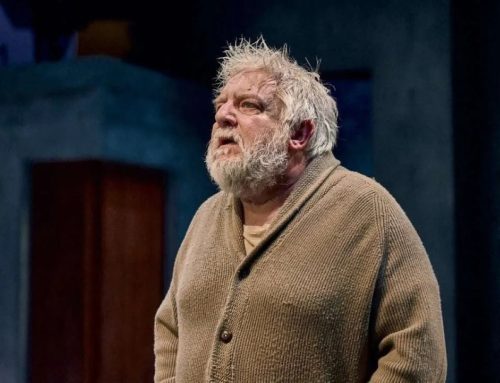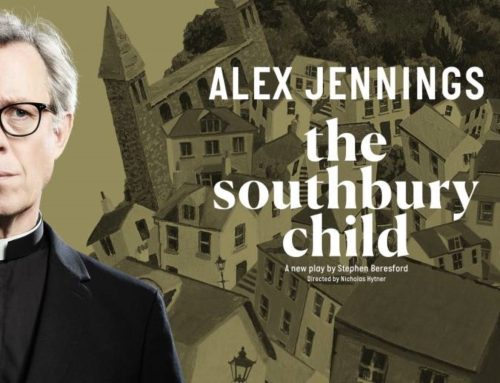David Hare and Ralph Fiennes are near the top of their game in this riveting drama about New York city planning.
1 April 2022
It has always struck me that David Hare’s main political preoccupation as a playwright is in exploring how systems work and how people behave within systems. Who are the winners and who are the losers? Who does the system advantage and who does it disadvantage?
As a dramatist Hare’s skill is to place interesting, plausible, characters inside these systems and see what happens. In the case of Robert Moses, whose four decades master-minding the development of much of New York and Long Island’s infrastructure shaped a generation of American city planning, he has identified an ideal, if unexpected, character to explore.
Moses is a controversial figure among modern city planners as a result of his perceived systemic preference for the interests of the white middle classes over the Latino and African American working class (thanks to the architect who serendipitously sat next to me at the Bridge for some fascinating interval education on this point).
Whatever the complexities of the real-life Moses, Hare’s central character is a complex and driven man whose determination to give people what he thinks they need, almost regardless of whether they believe they need it, motivates his life. He drives through vast projects through sheer will of personality, using whatever sleight-of-hand necessary to bulldoze aside objections (and objectors) to his own vision of what civilised Americans need from a civilised America. The central paradox of a democratic dreamer who ignores democratic will whenever it suits him is very well drawn.
The principal questions the drama asks are around the consequences that result from the system Moses puts in place to get what he wants. What does his dictatorial zeal to better the lives of others mean for the people he supposedly serves and for the people he comes into contact with? And what happens when he hits opposition he simply cannot overcome, whether from work partners, politicians, or protestor?
The drama is played out in the relationship between Moses and those around him, individuals who can broadly be divided into those who need to be got round, and those who can help him out. In the first half of the play, set in 1926, we cheer him on as he tramples over the objections of the Vanderbilt to open up New Yorker’s access to Long Islands beaches. By the second half in 1955, we are decidedly less keen to see him rip the heart from Washington Square Park to build yet another Expressway, over the objections of locals and his own long-suffering colleagues.
Ralph Fiennes, who can communicate a complex set of emotional responses with the mere flick of an eyebrow, is perfectly cast as Moses. Danny Webb as New York Governor Al Smith also shines as a wheeler dealer politician who knows he is being played by Moses but cannot quite work out how. Hytner’s direction is efficient in keeping the story moving, even if occasionally a trifle static for my tastes.
Highly recommended.
Duration: 2 hours 30 mins. One interval.
Writer David Hare
Director Nicholas Hytner
Cast
MARIAH HELLER Alisha Bailey
ARIEL PORTER Samuel Barnett
STAMFORD FERGUS David Bromley
SANDY MCQUADE Al Coppola
FINNUALA CONNELL Siobhán Cullen
ROBERT MOSES Ralph Fiennes
LEWIS MASON Ian Kirkby
SHIRLEY HAYES Alana Maria
CAROL AMIS Dani Moseley
HENRY VANDERBILT Guy Paul
JANE JACOBS Helen Schlesinger
NICOLE SAVAGE Mary Stillwaggon Stewart
GOVERNOR AL SMITH Danny Webb
Full Disclosure: I paid full box-office price for the ticket.




